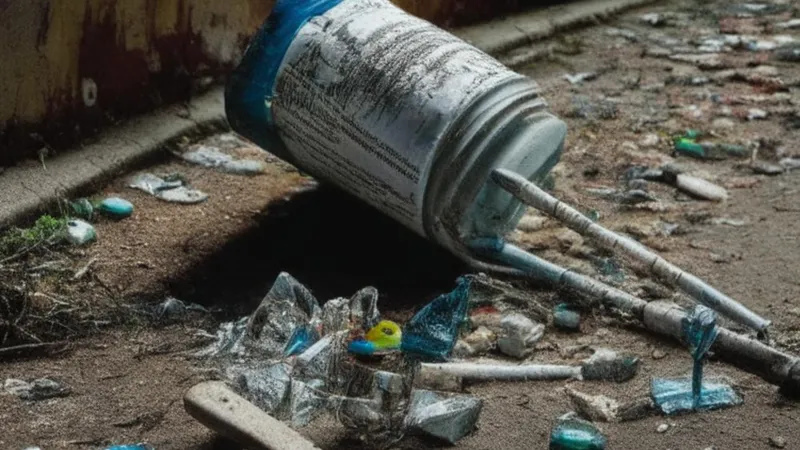Why drug abuse and illicit trafficking poses a significant global challenge
Marked on June 26, International Day against Drug Abuse and Illicit Trafficking aims to raise awareness and combat the global issues of drug abuse and illegal drug trade.
The issue of drug abuse and illicit trafficking has emerged as a significant global challenge, impacting individuals, communities, and societies on a large scale.
Every year, on June 26, the International Day against Drug Abuse and Illicit Trafficking is observed worldwide to raise awareness about the dangers of drug abuse, promote prevention initiatives, and combat the illegal drug trade.
In this article, we will explore the multifaceted aspects of drug abuse and illicit trafficking, their grave consequences, and the concerted efforts undertaken to address these pressing challenges.
The menace of drug abuse
Drug abuse refers to the excessive and harmful consumption of substances that possess psychoactive properties, including narcotics, stimulants, hallucinogens, and opioids. It is a multifaceted issue with a diverse set of causes, encompassing personal, social, and environmental factors.
Individuals may resort to drug use for various reasons, such as pursuing pleasure, seeking an escape from reality, alleviating pain, or succumbing to peer pressure.

Health implications
Drug abuse has severe health implications, adversely affecting both the physical and mental well-being of individuals. Prolonged substance abuse can lead to addiction, dependence, and irreversible damage to vital organs. Moreover, the misuse of drugs is associated with an increased risk of overdose, infectious diseases such as HIV/AIDS and hepatitis, mental disorders, and cognitive impairments. It not only inflicts direct harm on individuals but also imposes a substantial burden on the healthcare systems and society as a whole.
Societal consequences
The impact of drug abuse extends beyond the individual and permeates through families, communities, and society at large. Substance abuse can contribute to the breakdown of social structures, escalates crime rates, fosters violence, and perpetuates a vicious cycle of poverty and inequality. It strains relationships, compromises productivity, and undermines the overall well-being of communities.
The global drug trade
Illicit drug trafficking refers to the illegal production, transportation, and distribution of controlled substances. It operates as a highly lucrative global industry, with estimated annual revenues in the billions of dollars. Criminal organisations and drug cartels engage in the illicit drug trade, exploiting vulnerable populations and fueling violence and corruption. The profits generated from this illegal activity often finance other criminal enterprises, posing a significant threat to national security and global stability.
Transnational challenges
Effectively combating drug trafficking requires international cooperation and coordinated efforts. Criminal networks operate across borders, employing sophisticated smuggling techniques to transport drugs discreetly. Traffickers exploit weak governance structures, porous borders, and corrupt officials to facilitate their illicit operations. Disrupting these networks and dismantling their infrastructure necessitates collaborative initiatives between law enforcement agencies, intelligence sharing, and capacity building at the national and international levels.
Impact on developing nations
Developing nations often bear the brunt of the illicit drug trade due to their limited resources, fragile institutions, and geographical vulnerabilities. These countries serve as transit points or production hubs for drugs, exacerbating social, economic, and political challenges. The influx of drugs not only fuels addiction rates but also fosters violence, undermines governance, and hampers sustainable development efforts. Addressing the issue of illicit drug trafficking requires a comprehensive approach that considers the specific needs and challenges faced by developing nations.
International efforts
The United Nations plays a pivotal role in coordinating international efforts to combat drug abuse and illicit trafficking. The UN Office on Drugs and Crime (UNODC) spearheads initiatives aimed at promoting drug prevention, treatment, and rehabilitation programs worldwide. The organisation assists member states in strengthening their legal frameworks, enhancing law enforcement capabilities, and fostering international cooperation to effectively combat the drug menace.
A holistic approach
The international drug control framework rests upon three pillars: supply reduction, demand reduction, and international cooperation. Supply reduction focuses on disrupting the production, trafficking, and distribution of illicit drugs. Demand reduction emphasises prevention, treatment, and rehabilitation initiatives to address substance abuse. International cooperation aims to enhance collaboration between countries, share best practices, and provide technical assistance to combat drug-related crimes effectively.
Multidimensional approaches
Recognising the complexity of drug abuse and illicit trafficking, a multidimensional approach is crucial. Governments, civil society organisations, and other stakeholders must collaborate to implement evidence-based strategies that encompass drug prevention education, harm reduction programmes, access to treatment and rehabilitation services, and alternative development initiatives. Such an approach addresses not only the supply and demand aspects but also the underlying socioeconomic factors that contribute to drug abuse and illicit trafficking.
Edited by Kanishk Singh







